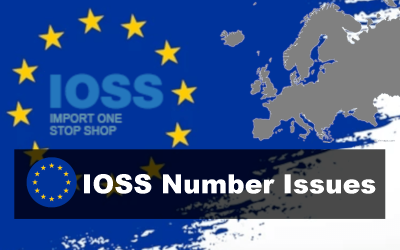VAT in Europe has been a hot subject since the beginning of 2019 when operators of online trading platforms became liable for sellers’ unpaid VAT duties, causing them to implement additional obligations for sellers to protect themselves and ensure sellers were compliant with VAT laws. Sellers who registered for VAT in Germany had to provide the platform with the certificate according to §22f of the German VAT Act (UStG.) The f22 VAT certificate.
Since the new EU rules introduced on the 1st July 2021, the rules have changed. Platforms & operators of marketplaces still have an obligation to collect information from the seller and in most cases are now classed as the deemed supplier for VAT. The requirement for the f22 VAT certificate has now been removed as a requirement when selling in Germany; however a VAT Identification number is now a prerequisite instead.
This means that businesses selling on a marketplace will need to obtain a German VAT ID before they can sell in Germany.
What is the §22f VAT Certificate?
Operators of online marketplaces such as Amazon and eBay have been held liable for the payment of VAT since January 2019, in accordance with §22 of the German VAT Act (UStG), for online sellers active on their website.
The regulation specified that affected marketplace operators must comply with strict recording obligations and demand information from sellers including:
- Name of Company
- Address
- Tax Number
- VAT Number
- Start and end date of the validity period
- Place of departure or dispatch and place of destination
- Date and amount of turnover
It was a mandatory requirement by sellers to apply for the certificate and present this to the marketplace to comply with the tax law and continue selling on their platform.
July 2021 Changes for §22f Certificate
Since the 1st July 2021, the requirement for the f22 certificate has been removed by the German authorities but it is now mandatory that sellers apply for a German VAT ID Number (this was also required previously). Marketplaces however do still require the following information:
- Name of company
- Business Address
- Dispatch location & place of destination
- Time and amount of sales
- Electronic address or website
- Description of items
- Tax Number in Germany
- Merchants bank details
- VAT ID number issued by the Federal Central Tax Office
VAT Requirements
Businesses looking to sell goods to German consumers from non-EU locations over 150 EUR will be required to register for VAT in Germany and charge German sales tax. There are also many other scenarios where a German VAT number is required.
There has been a huge shake up on how VAT works in Europe and businesses are now more confused then ever. Events such as Brexit and the new July 2021 rules have caused a massive change in the way VAT is dealt with in many different scenarios. Check out our full July 2021 VAT Guide to read all of the changes and how they affect you. If you are confused with VAT then feel free to contact our team who can help you navigate the confusing and constantly changing area of VAT.




